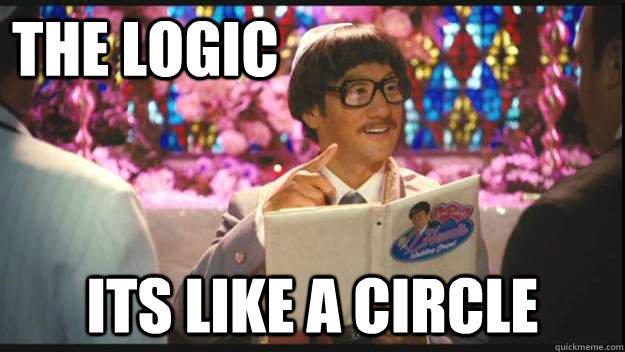Colleges
- AAC
- ACC
- Big 12
- Big East
- Big Ten
- Pac-12
- SEC
- Atlantic 10
- Conference USA
- Independents
- Junior College
- Mountain West
- Sun Belt
- MAC
- More
- Navy
- UAB
- Tulsa
- UTSA
- Charlotte
- Florida Atlantic
- Temple
- Rice
- East Carolina
- USF
- SMU
- North Texas
- Tulane
- Memphis
- Miami
- Louisville
- Virginia
- Syracuse
- Wake Forest
- Duke
- Boston College
- Virginia Tech
- Georgia Tech
- Pittsburgh
- North Carolina
- North Carolina State
- Clemson
- Florida State
- Cincinnati
- BYU
- Houston
- Iowa State
- Kansas State
- Kansas
- Texas
- Oklahoma State
- TCU
- Texas Tech
- Baylor
- Oklahoma
- UCF
- West Virginia
- Wisconsin
- Penn State
- Ohio State
- Purdue
- Minnesota
- Iowa
- Nebraska
- Illinois
- Indiana
- Rutgers
- Michigan State
- Maryland
- Michigan
- Northwestern
- Arizona State
- Oregon State
- UCLA
- Colorado
- Stanford
- Oregon
- Arizona
- California
- Washington
- USC
- Utah
- Washington State
- Texas A&M
- Auburn
- Mississippi State
- Kentucky
- South Carolina
- Arkansas
- Florida
- Missouri
- Ole Miss
- Alabama
- LSU
- Georgia
- Vanderbilt
- Tennessee
- Louisiana Tech
- New Mexico State
- Middle Tennessee
- Western Kentucky
- UTEP
- Florida International University
High School
- West
- Midwest
- Northeast
- Southeast
- Other
- Alaska
- Arizona
- California
- Colorado
- Nevada
- New Mexico
- Northern California
- Oregon
- Southern California Preps
- Washington
- Edgy Tim
- Indiana
- Kansas
- Nebraska
- Iowa
- Michigan
- Minnesota
- Missouri
- Oklahoma Varsity
- Texas Basketball
- Texas
- Wisconsin
- Delaware
- Maryland
- New Jersey Basketball
- New Jersey
- New York City Basketball
- Ohio
- Pennsylvania
- Greater Cincinnati
- Virginia
- West Virginia Preps
ADVERTISEMENT
Install the app
How to install the app on iOS
Follow along with the video below to see how to install our site as a web app on your home screen.
Note: This feature may not be available in some browsers.
You are using an out of date browser. It may not display this or other websites correctly.
You should upgrade or use an alternative browser.
You should upgrade or use an alternative browser.
No Big Bang?
- Thread starter prlyles
- Start date
Stuff like this hurts my brain.
I read the article and it basically suggest that the universe may have existed "forever". But what is "forever"? I mean, doesn't there have to be a beginning to everything? I would think that answer would be undoubtedly "yes" especially to those that don't subscribe to a supreme being.
Mindboggling stuff for sure.
I read the article and it basically suggest that the universe may have existed "forever". But what is "forever"? I mean, doesn't there have to be a beginning to everything? I would think that answer would be undoubtedly "yes" especially to those that don't subscribe to a supreme being.
Mindboggling stuff for sure.
Yeah, I have a hard time getting my head around the concept of forever.Originally posted by gunslingerdick:
Stuff like this hurts my brain.
I read the article and it basically suggest that the universe may have existed "forever". But what is "forever"? I mean, doesn't there have to be a beginning to everything? I would think that answer would be undoubtedly "yes" especially to those that don't subscribe to a supreme being.
Mindboggling stuff for sure.
It has to be yes according to the laws of physics. Obviously they still have a few kinks to work out.Originally posted by gunslingerdick:
Stuff like this hurts my brain.
I read the article and it basically suggest that the universe may have existed "forever". But what is "forever"? I mean, doesn't there have to be a beginning to everything? I would think that answer would be undoubtedly "yes" especially to those that don't subscribe to a supreme being.
Shame to see the science press getting it wrong. The researchers aren't suggesting there wasn't a BB, they just trying to get there without starting at a singularity. They posit a quantum fluctuation as the beginning of the universe. So they're really not even saying the universe - as we understand it, anyway - existed forever but that the quantum potential for the universe has always been there and the potentiality collapsed and then expanded into our universe 13.8 billion years ago. Doesn't sound like a huge difference from our perspective but it does clear up a few issues with a singularity as the starting point.
Originally posted by tarheelbybirth:
Shame to see the science press getting it wrong. The researchers aren't suggesting there wasn't a BB, they just trying to get there without starting at a singularity. They posit a quantum fluctuation as the beginning of the universe. So they're really not even saying the universe - as we understand it, anyway - existed forever but that the quantum potential for the universe has always been there and the potentiality collapsed and then expanded into our universe 13.8 billion years ago. Doesn't sound like a huge difference from our perspective but it does clear up a few issues with a singularity as the starting point.

Gotta link for that?Originally posted by tarheelbybirth:
Shame to see the science press getting it wrong. The researchers aren't suggesting there wasn't a BB, they just trying to get there without starting at a singularity. They posit a quantum fluctuation as the beginning of the universe. So they're really not even saying the universe - as we understand it, anyway - existed forever but that the quantum potential for the universe has always been there and the potentiality collapsed and then expanded into our universe 13.8 billion years ago. Doesn't sound like a huge difference from our perspective but it does clear up a few issues with a singularity as the starting point.
Wow, you do have some catching up to do!!The Bing Bang Theory is trash TV.
Hope this helps.
Don't hurt yourself, poopslinger. Take some aspirin.Stuff like this hurts my brain.
I read the article and it basically suggest that the universe may have existed "forever". But what is "forever"? I mean, doesn't there have to be a beginning to everything? I would think that answer would be undoubtedly "yes" especially to those that don't subscribe to a supreme being.
Mindboggling stuff for sure.
Took you 6 years to come up with that insult?Don't hurt yourself, poopslinger. Take some aspirin.
Hubble focused on a tiny TINY portion of the sky and found like a billion galaxies. The things out there, the vastness,…it truly is mind blowing. Even traveling at the speed of light wouldn’t enable you to scratch the surface. It’s awe inspiring but also a bit depressing knowing we’ll never have a clue about it all. Just best guesses from afar.
Think of all the extraterrestrial tourists that could visit Wilmington.Hubble focused on a tiny TINY portion of the sky and found like a billion galaxies. The things out there, the vastness,…it truly is mind blowing. Even traveling at the speed of light wouldn’t enable you to scratch the surface. It’s awe inspiring but also a bit depressing knowing we’ll never have a clue about it all. Just best guesses from afar.
We might know a little bit more in the next few years thanks to this Friday's launch of an Ariane 5 rocket from Europe's Spaceport in Kourou, French Guiana. Its payload will be the James Webb Space Telescope, described as "the world's premier science observatory."Hubble focused on a tiny TINY portion of the sky and found like a billion galaxies. The things out there, the vastness,…it truly is mind blowing. Even traveling at the speed of light wouldn’t enable you to scratch the surface. It’s awe inspiring but also a bit depressing knowing we’ll never have a clue about it all. Just best guesses from afar.
For anyone who hasn't heard about the telescope, it is designed to peer into atmospheres of distant alien planets and observe some of the first galaxies formed after the Big Bang.
Webb Space Telescope
Yeah, I have a hard time getting my head around the concept of forever.

Think of all the extraterrestrial tourists that could visit Wilmington.
No doubt They’d feed the damn seagulls
I'm glad Nasa is collaborating with the world. It is also interesting that none of Europe has an ideal launch point (easterly waters, all that) and have to ship rockets to Africa instead.We might know a little bit more in the next few years thanks to this Friday's launch of an Ariane 5 rocket from Europe's Spaceport in Kourou, French Guiana. Its payload will be the James Webb Space Telescope, described as "the world's premier science observatory."
For anyone who hasn't heard about the telescope, it is designed to peer into atmospheres of distant alien planets and observe some of the first galaxies formed after the Big Bang.
Webb Space Telescope
I thought it was one of those snow globes? Or, is that just State fans over in Fanville?You know we are living in a simulation right?

Similar threads
- Replies
- 1
- Views
- 353
- Replies
- 5
- Views
- 422
- Replies
- 0
- Views
- 168
- Replies
- 0
- Views
- 134
- Replies
- 0
- Views
- 350
ADVERTISEMENT
Latest posts
-
Tez Walker Drafted by Baltimore Ravens in 4th Round (UNC release added)
- Latest: Sideshow Greg
-
-
-
Cedric Gray Drafted by Tennessee Titans in 4th Round (UNC release added)
- Latest: andrew jones
-
ADVERTISEMENT



